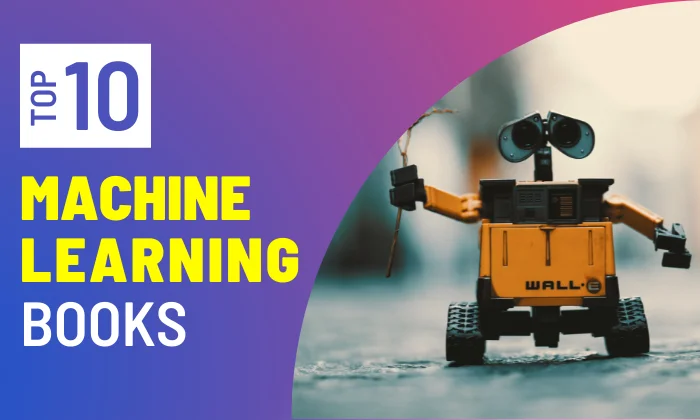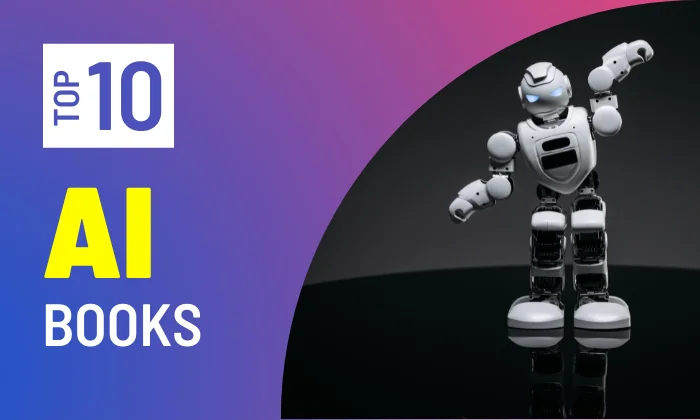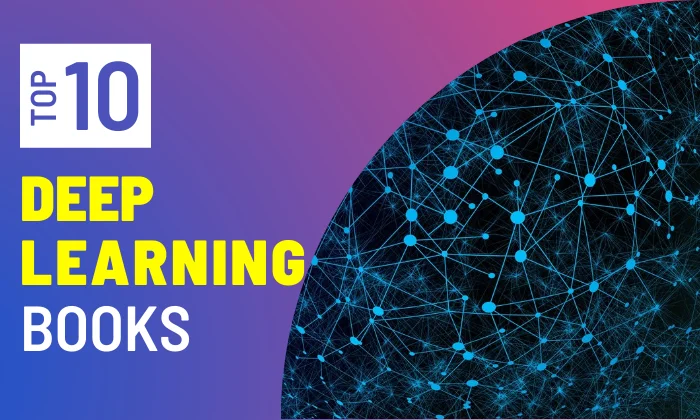Machine learning is a subfield of artificial intelligence (AI) and computer science that focuses on using data and algorithms to mimic how people learn, progressively improving its accuracy. It is a data analysis technique that automates the creation of analytical models. Machine learning is a crucial component of the expanding area of data science. It is founded on the notion that systems can learn from data, detect patterns, and make choices with little or no human interaction. These are the top 10 machine learning books that will help you learn about machine learning (ML).

1. Introduction to Machine Learning with Python
By Andreas C. Muller and Sarah Guido
This book explains the fundamentals of ML. It has become an essential component of many commercial applications and research projects, but it is not restricted to huge companies with extensive research teams. This book will show you practical techniques to construct your machine-learning solutions if you use Python, even if you are a beginner.
Machine learning applications are only limited by your creativity with all of the data accessible today. The reader will learn how to use Python and the Scikit-learn package to build a successful machine-learning application.
The authors have paid attention to the implications of ML algorithms instead of focusing on the underlying mathematics. Understanding the NumPy and Matplotlib libraries will help you get the most out of this book.
2. Machine Learning For Absolute Beginners: A Plain English Introduction (Second Edition)
By O Theobald
This book has been written and designed for absolute beginners. This indicates that no coding knowledge is required and that explanations are delivered in plain English. Clear explanations and visual examples are also included where fundamental methods are taught to make it easy and entertaining to follow along at home.
The New edition of this book covers many subjects and it is a re-organized and re-designed version of the previous book. This book is a step-by-step guide for beginners in which they will learn the basics of ML, Regression Analysis which is used to generate trend lines and forecast trends, how to create your first machine learning model in Python to predict video game sales, and many more.
3. The Hundred-Page Machine Learning Book
By Andriy Burkov
The author has accomplished a highly beneficial but impossible feat by condensing everything of machine learning into 100 pages. He does a good job of selecting issues — both theoretical and practical — that will be valuable to practitioners.
In a few words, the author outlines the fundamental concepts. The book may be highly beneficial for both novices and old-timers in the subject since both can benefit from such a broad view of the topic. The book demonstrates several of the methods with Python code, one of the most popular coding languages for machine learning. There is certainly no shortage of information on the various techniques, and the interested reader may learn more about any particular method by exploring the ingenious companion book wiki.
4. Machine Learning For Dummies
By John Paul Mueller and Luca Massaron
This book is written by two data science specialists and offers a much-needed entry point for anybody wanting to apply machine learning to perform practical tasks. Machine learning might be a difficult subject for the general public, but those who work in computer programming understand how valuable it is.
Fraud detection, web search results, real-time advertisements on websites, credit scoring, automation, and email spam filtering would not be possible without machine learning, and these are just a few of its possibilities. This tutorial rapidly helps you make sense of the programming languages and tools you need to convert machine learning-based tasks into a reality by covering the entry-level subjects needed to familiarize you with the basic ideas of machine learning. Dive into this comprehensive beginner’s guide to discover everything you need to know about machine learning.
5. Fundamentals of Machine Learning for Predictive Data Analytics, second edition: Algorithms, Worked Examples, and Case Studies
By John D. Kelleher
This comprehensive, user-friendly machine learning guide covers a broad range of ideas, algorithms, and data techniques for predictive analytics, the most common business tool for converting data into insights, ideas, and action. By identifying patterns from large datasets, machine learning is often used to construct prediction models. These models are used in applications such as price prediction, risk assessment, forecasting customer behavior, and document classification.
This second edition includes additional chapters on deep learning and unsupervised learning, as well as two new chapters that go beyond predictive analytics to include unsupervised learning and reinforcement learning.
This book offers students detailed knowledge of fundamental ideas and provides them with a good foundation for further exploration of the field on their own.
6. Mathematics for Machine Learning
By Marc Peter Deisenroth
In this book, mathematical tools like linear algebra, analytic geometry, matrix decompositions, vector calculus, optimization, probability, and statistics are taught in a way that makes it easy for data science or computer science students or professionals to acquire mathematics quickly.
By explaining mathematical notions with the fewest needs, this book tries to bridge the gap between “mathematics” and “machine learning literature.”
It includes four basic machine learning algorithms from these concepts: linear regression, principal component analysis, Gaussian mixture models, and support vector machines. These derivations give a starting point for machine learning literature for students and anyone with a mathematical background. Each chapter includes work examples and tasks to assess comprehension.
7. Hands-On Machine Learning with Scikit-Learn, Keras, and TensorFlow
By Aurelien Geron
This book practically tells the reader how deep learning has improved the whole area of machine learning with several recent achievements. Even programmers with little knowledge of this technology may now utilize simple, efficient tools to create algorithms that can learn from data.
The author helps the reader develop an intuitive grasp of the ideas and tools for constructing intelligent systems by utilizing simple examples, minimal theory, and two production-ready Python frameworks—Scikit-Learn and TensorFlow.
The interested reader can master a variety of approaches, beginning with simple linear regression and working your way up to deep neural networks. What you require to start is basic programming knowledge, and activities in every chapter will help you apply whatever you have learned.
8. Pattern Recognition and Machine Learning
By Christopher M. Bishop
This is the first pattern recognition textbook to explain the Bayesian viewpoint. The book describes approximate inference techniques, which allow for quick approximate solutions in situations when exact answers are not possible. When no other books adapt graphical models to machine learning, it utilizes them to characterize probability distributions.
There is no presupposition of prior understanding of pattern recognition or machine learning principles. Working knowledge of multivariate calculus and basic linear algebra is necessary, as is some familiarity with probabilities, however, this is not required because the book provides a self-contained introduction to fundamental probability theory and will be helpful to simulate the learning and ideas practically.
9. Python Machine Learning: Machine Learning and Deep Learning with Python, scikit-learn, and TensorFlow
By Sebastian Raschka
The third edition of this book offers an in-depth look at machine learning and deep learning in Python. It serves as both a step-by-step instruction and a reference that you will return to as you construct your machine learning systems. The book covers all of the main machine-learning techniques in full, with clear explanations, graphics, and working examples. While some publications just teach the concepts of machine learning in this book, allowing the person to develop models and applications for themselves.
Updated for TensorFlow 2.0, this edition introduces users to TensorFlow’s new Keras API capabilities as well as Scikit-most learn recent improvements. It has also been expanded to include cutting-edge deep learning-based reinforcement learning approaches, as well as an introduction to GANs.
This book also digs into a branch of natural language processing (NLP) known as sentiment analysis, which will teach you how to categorize documents using machine learning techniques.
10. Approaching (Almost) Any Machine Learning Problem
By Abhishek Thakur
The author’s approach to this book is not traditional. This book includes a lot of coding and it is easy to say it is not targeting the beginner-level audience. Those people who have a theoretical knowledge of machine learning and deep learning can benefit themselves by using this book.
This book is not focused on the basics or fundamentals of ML. The book does not describe the algorithms in detail, instead of focusing on how and what to use to tackle machine learning and deep learning issues.
Stay tuned to AiHints for more insightful tutorials on web development, programming, and artificial intelligence. Happy coding!


